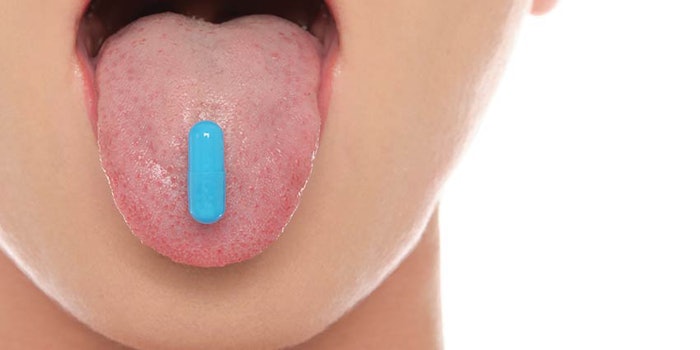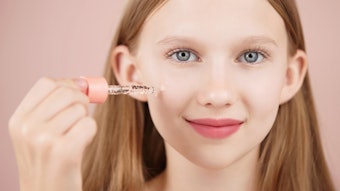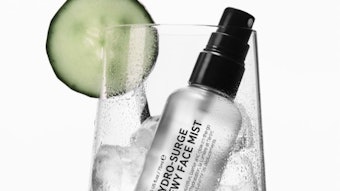
Achieving beautiful skin is no longer confined to wearing makeup or applying anti-aging creams to hide or reverse the unkindly visible. At the same time, greater knowledge and urban lifestyles are encouraging consumers to have healthy skin at all times.
The bottom line is “I want to feel and look good,” and, to do so, consumers seek to maintain hydrated luminous skin, protect it from external impurities such as pollution and get a gradual tan without the burn.
Consumers are getting used to the idea of using preventative products at a young age to prolong youthfulness.
Along with a more educated consumer comes a quest for a cleaner lifestyle, as well as a greater awareness of the use of chemicals in a number of products and a declining interest in unnatural tans and “roasted” skin.
This is perhaps what is driving the beauty industry to align itself more proactively with health care. Among the most dynamic beauty segments, particularly with skin care and sun care, is dermocosmetics. Going forward, this may be a detriment to remedial options, such as anti-agers, which are typically the purview of most cosmetics brands.
Quest for Prevention
Prevention is proving to be a formidable source of growth in skin and sun care (F-1). Acne-sufferers are already aware of the scarring damage caused by acne, the unsightly look of flaring eczema and the difficulty of reversing wrinkle formation caused by sunburns, dry skin and older age. Hence, consumers are getting used to the idea of using preventative products at a young age to prolong youthfulness.
F-1. Global skin and sun care categories: forecast absolute growth 2015-2020; % CAGR 2010-2015 and 2015-2020
As a result, anti-agers, which remain solid at the moment, might eventually lose some of their spark, with strong activity coming from other skin care categories.
When examining beauty dietary supplements and beauty-from-within sales, it is apparent that this space remains Asia-centric.
This scenario is boosting dermocosmetics, and variants that embody similar characteristics, such as health-alignment and the use of powerful natural ingredients. Top skin care performers Avène, La Roche-Posay, Eucerin and Rodan + Fields have expanded at the same level or faster than the overall skin and sun care segments, which expanded at a 5% CAGR between 2010 and 2015.
As a result, dermocosmetics is witnessing new entrants such as Rodan + Fields, Murad and Cetaphil, which are looking to exploit opportunities in beauty’s prevention trend, as well as consumer demand for products endorsed and/or developed by dermatologists.
In other developments, Nestlé formed Nestlé Skin Health following the 2014 acquisition of Galderma. The group was established to lead the beauty-healthcare convergence, with product lines such as Cetaphil’s skin hydration and protection offerings for consumers with “troubled” skin. More recently, the company joined forces with Guthy-Renker to boost the non-prescription kits and treatments of the leading Proactiv brand.
Dermocosmetics Can Solve the Nutricosmetics Problem
As nutricosmetics struggle to take off beyond Asia Pacific, those with backing from credible high-equity dermocosmetics brands stand the best chance of succeeding (F-2).
When examining beauty dietary supplements and beauty-from-within sales, it is apparent that this space remains Asia-centric, where the idea that beauty is what you eat is rooted in local culture. In other regions, most notably North America, legislative constraints, consumer cynicism and a desire for instant visible results limit the segment’s growth.
F-2. Global and key regional value sales: beauty from within (2010-2015) and beauty dietary supplements
Consumer preference remains overwhelmingly for health-positioned supplements, which may include ingredients such as vitamin C that provide, but do not acknowledge, beauty benefits. While the state of our hair and skin reflects personal health, a “beauty” claim is often too “shallow” for the consumer, compared to a health claim—especially in an era when consumers demand tangible proof of efficacy.
Dynamic brands such as Murad and Caudalie already sell their own supplements with a variety of benefits such as blemish control and anti-wrinkle.
One of the latest fads in nutricosmetics is the wave of collagen-containing functional foods claiming to replace the collagen lost with aging. However, there are questions as to whether the collagen is actually absorbed by the body or reaches the skin in order to perform its function. Dermatologists’ opinions are mixed on the subject, and unfavorable ones tend to adversely impact consumer purchasing decisions.
Seemingly, nutricosmetics are bound to be the underdog within the wider beauty and nutraceuticals industries for the foreseeable future. The tough reality is that nutricosmetics cannot survive in isolation and need to be part of a broader regime that includes topical applications and a wider spectrum of health supplements.
Making Beauty-from-Within Work
Beauty-from-within food and beverages, positioned as beneficial healthy substitutes to food snacks and drinks, are another option for brands, especially as consumers may find ingesting pills less thrilling. However, that category remains niche, projected to generate $60.5 million in absolute gains globally between 2015 and 2020, led by the markets of Asia Pacific and Western Europe.
A brand that is seemingly defying this scenario is Dirty Lemon, an Instagram-ready drinkable beauty range consisting of detox, energy, skin and hair, and sleep drinks. The brand boasts a strong beauty blogger backing for its pleasant taste, results and embodiment of a holistic approach to health, body and mind well-being.
While the dominance of dietary supplements positioned for health benefits is expected to persist, beauty ingestibles find their strength in the equity of a stronger partner—dermocosmetics. Dynamic brands such as Murad and Caudalie already sell their own supplements with a variety of benefits such as blemish control and anti-wrinkle.
Beauty supplements players without a presence in topical counterparts can enhance their prospects by co-branding with a dynamic skin care player to promote the supplements as part of an extended skin care regime.










